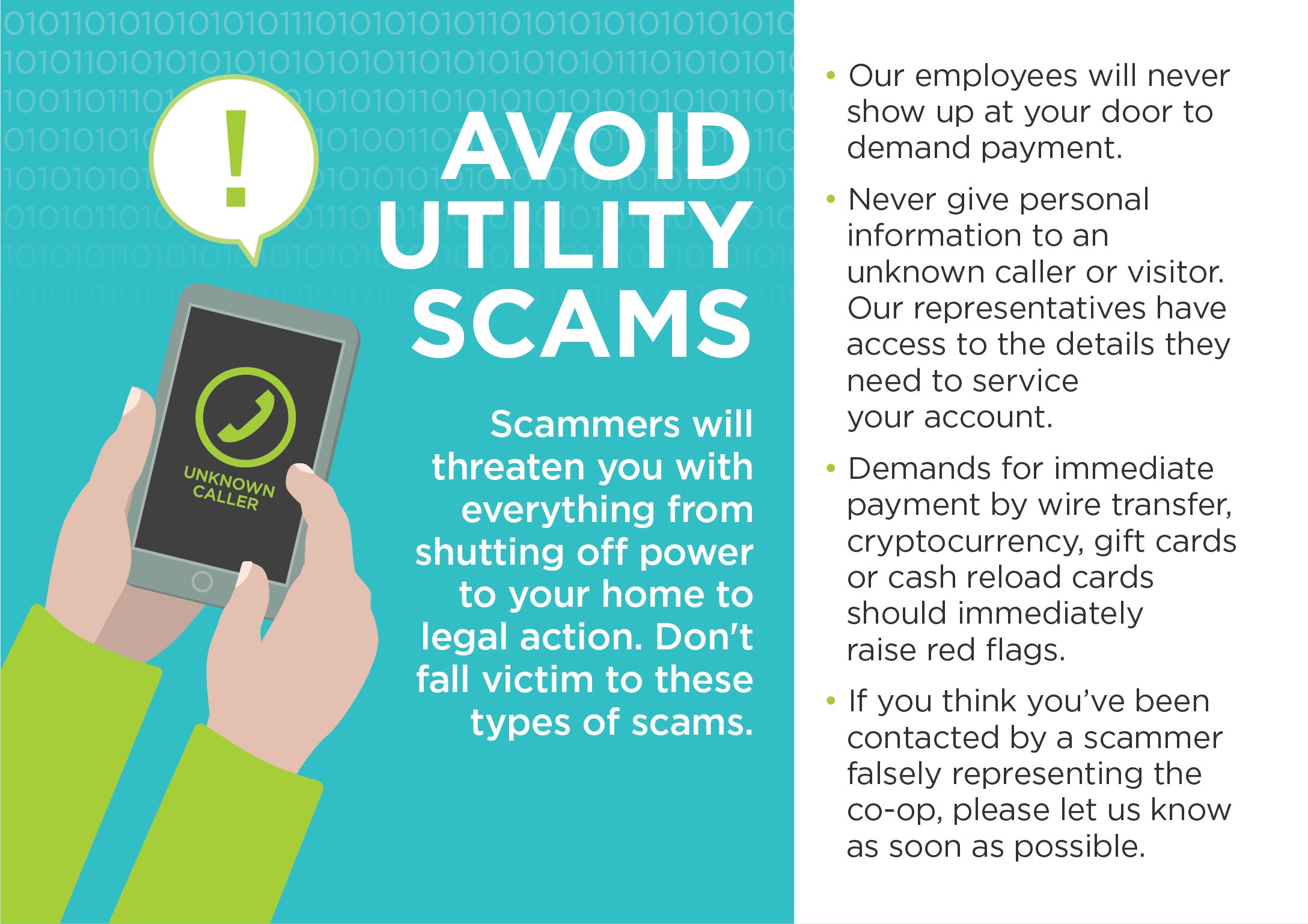Every day, millions of Americans are targeted by scammers through phone calls, emails, text messages, online or in person.
These scammers’ tactics can change daily, which is why it’s important for members like you to stay on top of the latest scam reports from local and national news outlets, as well as your local utility companies.
Our consumer service representatives at Wheatland Electric receive calls from our members almost daily about scammers (both automated calls and live persons) who request immediate payment and threaten to shut off power if payment is not received. Oftentimes, these scammers will use threats and claim that your account is delinquent or past due to try to confuse or scare you.
We want our members to know that we NEVER call members directly asking for payment. In the event of a delinquency, notices are made only by mail or email (and text message, if you're signed up through SmartHub).
As a consumer, it's incredibly important that you arm yourself from utility scams, which are almost always on the rise.
At this time, we want you to be aware of two trending scam tactics. One is the overpayment trick, where a scammer contacts you and claims that you have overpaid your utility bill. The scammer will say they need your personal banking information to deposit the credit back to your checking account.
Don’t fall for this scam! If you make an overpayment on your energy bill, we will automatically apply the credit to your account, which will carry over to your next billing cycle.
Another trending scam is smishing (short for SMS phishing). Many of us know to watch out for suspicious emails, but we tend to trust text messages sent to our smartphones. But scammers are getting trickier. You should always question suspicious texts, especially from someone claiming to represent a utility.
These are just a couple examples of trending scams, so it’s important to watch for any red flags. Here are a few reminders on how to take control of the situation when you’ve been targeted by a scammer:
-
Take your time. Utility scammers try to create a sense of urgency so that you’ll act fast and hand over personal information, especially over the phone. Take a moment to think about the situation before acting.
-
Be suspicious. Scammers typically request immediate payments through prepaid debit cards or third-party apps. Unusual requests like this should raise red flags. Remember, if the request seems strange and out of the ordinary, you’re likely being targeted by a scammer.
-
Confirm before you act. If you’re contacted by someone claiming to represent Wheatland Electric or another utility but you’re unsure, just hang up the phone and call us directly.
At Wheatland Electric, we will only send you important updates via text if you’ve signed up for them through SmartHub. Any other notices, by mail or email, are typically information-based and do not require you to click any links.
Our increasingly connected world provides scammers with more opportunities to connect with unsuspecting consumers. And these bad actors are relentless. As always, if you're unsure about a communication from us, we're only a phone call away! We encourage you to contact your local office to talk to a real-live consumer service representative who is here to answer all your questions and address your concerns.
Be vigilant! We encourage you to share this information with your friends and family. Together, we can help protect ourselves and the ones we love from becoming a victim!


